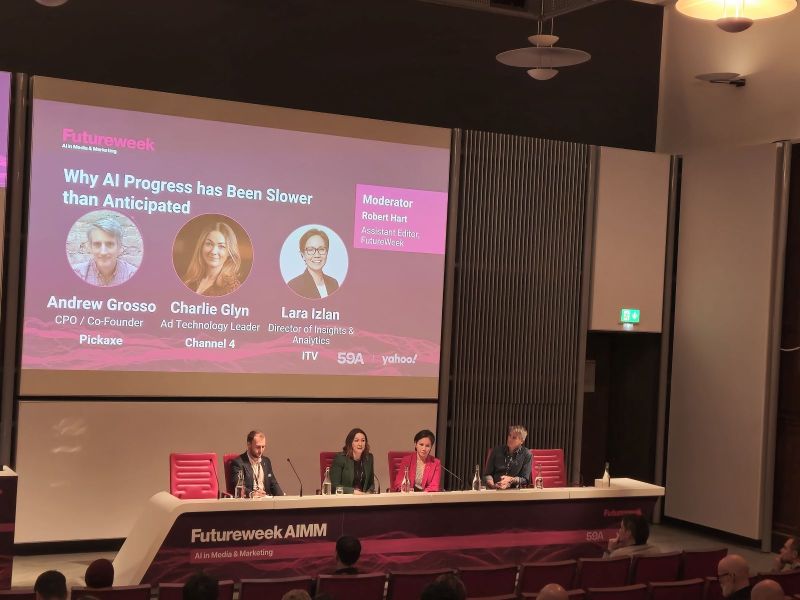
AI progress hasn’t actually been slow at all
Despite the name of the panel, we actually think that on a broader scale, AI shouldn’t be considered disappointing. It’s out here detecting cancer, targeting the surface of Mars for NASA, and translating text in real time. It’s even perfectly replicating singer Brenda Lee’s voice. These are objectively massive accomplishments!
Of course, there are still lots of things that AI can’t do, but the degree of growth that has happened in the last few years has been remarkable.
That said, AI is currently in a phase where it’s advanced enough to trigger an “uncanny valley”-esque response in many of us. When generative AI was new, seemingly everything it did was a marvel. Now, it’s capable of so much more, but it’s just falling short enough that instead of feeling marvelous, it’s annoying.
When we think within the bubble of adtech and martech, our lives haven’t necessarily changed that much. We’re still going to meetings all the time – it’s just that now, there are automatic notetaking tools, or other small things that don’t feel like they’re adding much.
Our mild disappointment is a great jumping off point
If you’re just playing around with a chat bot and wondering why it’s not changing your life…you might be the problem. A gentle suggestion: if it feels like AI hasn’t changed your life in a measurable way, it’s possible that you could be doing more with it! It’s not the right tool for everything, and there are a lot of areas where it needs work to be fully effective. But when it comes to things like generating first drafts of code, processing large amounts of text, or sifting through data to find specific information, LLMs and AI are pretty dang life-changing.
The fact that we’re disappointed is a sign that the benchmarks for AI success are shifting, and the bar is getting higher. AI can effectively pass the Turing test, and complete general tasks. So now, to get to a point where it’s more useful on a daily basis, the focus now has to be on advanced feature engineering and prompt editing. There’s enough of a groundwork laid that we can start critiquing the job that AI is doing…which is actually a big step forward. Now that there’s enough technology in place for us to scrutinize, the new focus can now be on refining models to address specific shortcomings.
Think about AI replacing your jobs, not replacing you.
You want AI to replace your jobs, not your Job. While no one wants to be replaced by AI, there are a million small tasks most of us do at work every day that we’d love to be able to delegate to a machine.
Now that AI is more prevalent, we should shift from thinking about all the big dramatic things that it could someday be capable of, to thinking about the ways it could concretely help us during our day to day work (as well as how we can start training ourselves to work with it effectively).
For example, a good exercise that we’ve recently started doing at Pickaxe is to sit down together at the conclusion of every sprint call and ask ourselves: “what did we do during this last sprint that we wish AI could have done instead?” By identifying the boring, little things that we want AI to accomplish, we can be more thoughtful about how it might actually change our lives. We might not use AI to fix all of those things, but having the list gives us a roadmap of wins we could achieve with it. And that thoughtfulness can help refine strategy and invest time and money in a more savvy way.
Now that the reality of AI is becoming more concrete, we can better understand what it’s able to do for us in the present. But even more importantly – by taking note of our disappointments, and the gaps we see in our daily workflow, we can better identify what we actually want AI to do for us in the future. This stage in the hype cycle is a great time to get specific and think deeply about how AI can make a meaningful difference.

